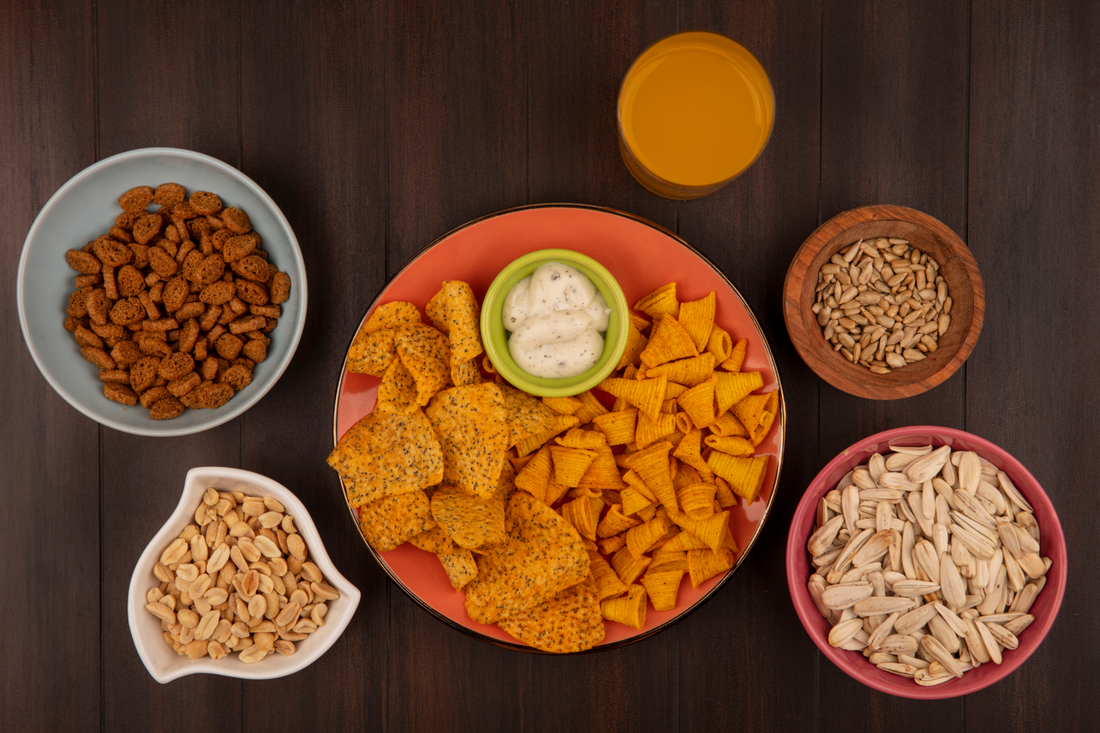The demand for plant-based snacks is rising as more people choose healthier, more sustainable food options. Studies show that the global plant-based snack market is expected to reach $73.6 billion by 2028, growing at a healthy CAGR of 8.7%. This shift is driven by health-conscious consumers, environmental concerns, and the growing appeal of plant-based diets. In this article, we explore why plant-based snacks are trending, what makes them a healthier choice, and how SNACKLINS is leading the way with its delicious, low-calorie, and guilt-free snacks.
Table of Contents
- Why are plant-based snacks becoming so popular?
- Are plant-based snacks really healthier?
- How do plant-based snacks help the environment?
- What are the latest trends in the plant-based snack industry?
- Where does SNACKLINS fit into the plant-based snack revolution?
- Conclusion
Why are plant-based snacks becoming so popular?

In recent years, plant-based snacks have gained massive popularity. The shift is fuelled by:
- Health-conscious consumers: More people are avoiding processed foods and artificial additives.
- Rise in vegan and flexitarian diets: Around 6% of U.S. consumers identify as vegan, up from 1% in 2014, and 47% consider themselves flexitarians (Plant Based Foods Association, 2023).
- Food allergies and sensitivities: Plant-based snacks offer alternatives to common allergens like dairy and gluten.
- Sustainability concerns: Consumers are more aware of how food choices impact the planet.
- Better availability: Grocery stores and online markets are now filled with plant-based snack options.
These factors contribute to a growing industry that is expected to see continued growth in the coming years.
Are plant-based snacks really healthier?

Many consumers turn to plant-based snacks for their health benefits. But are they really better for you?
- Lower in calories: Many plant-based snacks have fewer calories than traditional chips or processed snacks. For example, SNACKLINS contain only 90 calories per bag, much lower than standard potato chips, which can have 150-200 calories per serving.
- More fiber and nutrients: Many plant-based snacks contain fiber, vitamins, and antioxidants that help digestion and overall health.
- Less saturated fat: Traditional snacks, like cheese puffs or fried chips, often contain unhealthy fats. In contrast, plant-based snacks rely on natural oils like sunflower or avocado oil, which are heart-friendly.
However, not all plant-based snacks are created equal. Some can be highly processed and contain added sugars or preservatives. That’s why it’s important to check labels and choose whole, minimally processed snacks like SNACKLINS.
How do plant-based snacks help the environment?
Sustainability is a huge driver behind the rise of plant-based snacks. Compared to animal-based or heavily processed foods, they have a lower carbon footprint. Here’s why:
- 🌱 Uses fewer resources: Plant-based snacks require less water, land, and energy than meat-based or dairy-heavy snacks. For example, it takes 1,800 gallons of water to produce just one pound of beef, compared to only 39 gallons for a pound of vegetables (FAO, 2022).
- 🌱 Uses fewer resources: Plant-based snacks require less water, land, and energy than meat-based or dairy-heavy snacks. For example, it takes 1,800 gallons of water to produce just one pound of beef, compared to only 39 gallons for a pound of vegetables (FAO, 2022).
- ♻ Less packaging waste: Many plant-based brands, including SNACKLINS, focus on eco-friendly packaging, reducing plastic waste and promoting sustainability.
Switching to plant-based snacks is a small but powerful way to contribute to a greener planet.
What are the latest trends in the plant-based snack industry?

The plant-based snack industry is evolving fast. Here are some of the biggest trends shaping the market today:
- Alternative protein sources: Beyond soy, brands are using chickpeas, lentils, mushrooms, and seaweed to create high-protein snacks.
- Whole-food ingredients: Consumers prefer simple, recognizable ingredients with fewer additives.
- Whole-food ingredients: Consumers prefer simple, recognizable ingredients with fewer additives.
- Whole-food ingredients: Consumers prefer simple, recognizable ingredients with fewer additives.
- Whole-food ingredients: Consumers prefer simple, recognizable ingredients with fewer additives.
Brands that embrace these trends are gaining a strong foothold in the market.
Where does SNACKLINS fit into the plant-based snack revolution?
With so many plant-based snack brands emerging, what makes SNACKLINS different?
- Incredibly low-calorie: At just 90 calories per bag, SNACKLINS are one of the lowest-calorie crunchy snacks available.
- Simple, clean ingredients: Made from real yuca, mushrooms, and onions, SNACKLINS skip the artificial fillers and preservatives.
- Big crunch, bold flavours: SNACKLINS delivers a satisfying crunch with delicious flavours like Barbeque, Chesapeake Bay, and Nacho.
- Vegan and gluten-free: SNACKLINS are 100% plant-based and free from gluten, making them a great choice for anyone with dietary restrictions.
- Eco-conscious brand: From sourcing sustainable ingredients to using eco-friendly packaging, SNACKLINS is committed to a healthier planet.
As more people shift toward plant-based snacks, SNACKLINS stands out by offering a guilt-free, flavourful, and satisfying alternative to traditional chips.
Conclusion
The plant-based snack movement is not just a trend—it’s a long-term shift in the way people eat. Consumers are looking for healthier, eco-friendly, and delicious options, and brands like SNACKLINS are stepping up to meet that demand. Whether you're vegan, flexitarian, or just looking for a better snack, plant-based snacks like SNACKLINS offer the perfect crunch without the guilt.

